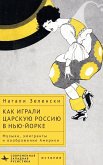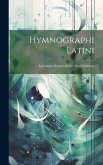ENG Performing Pain explores music's relationships to trauma and grief by focusing upon the late 20 th century in Eastern Europe. The 1970s and 80s witnessed a cultural preoccupation with WWII and the Stalinist era. Journalists, historians, writers, artists, and filmmakers explored themes related to pain and memory, truth and history, morality and spirituality during glasnost and the years prior. Performing Pain considers how music by composers Alfred Schnittke, Galina Ustvolskaya, Arvo Päauml;rt, and Henryk Góoacute;recki musically engage contemporary concerns regarding suffering through composition, performance, and reception. Drawing upon theories from psychology, sociology, and literary studies, this book demonstrates the ways in which people turn to music to make sense of trauma and loss. RUS В своей книге Мария Чизмич исследует отражение травмы в музыкальном искусстве Восточной Европы конца ХХ века. В 1970-80-е годы вопрос коллективной травмы, особенно связанной со Второй мировой войной и сталинской эпохой, стал темой для публичного обсуждения. Журналисты, историки, писатели, художники и кинематографисты неоднократно обращал&a
Hinweis: Dieser Artikel kann nur an eine deutsche Lieferadresse ausgeliefert werden.
Hinweis: Dieser Artikel kann nur an eine deutsche Lieferadresse ausgeliefert werden.








